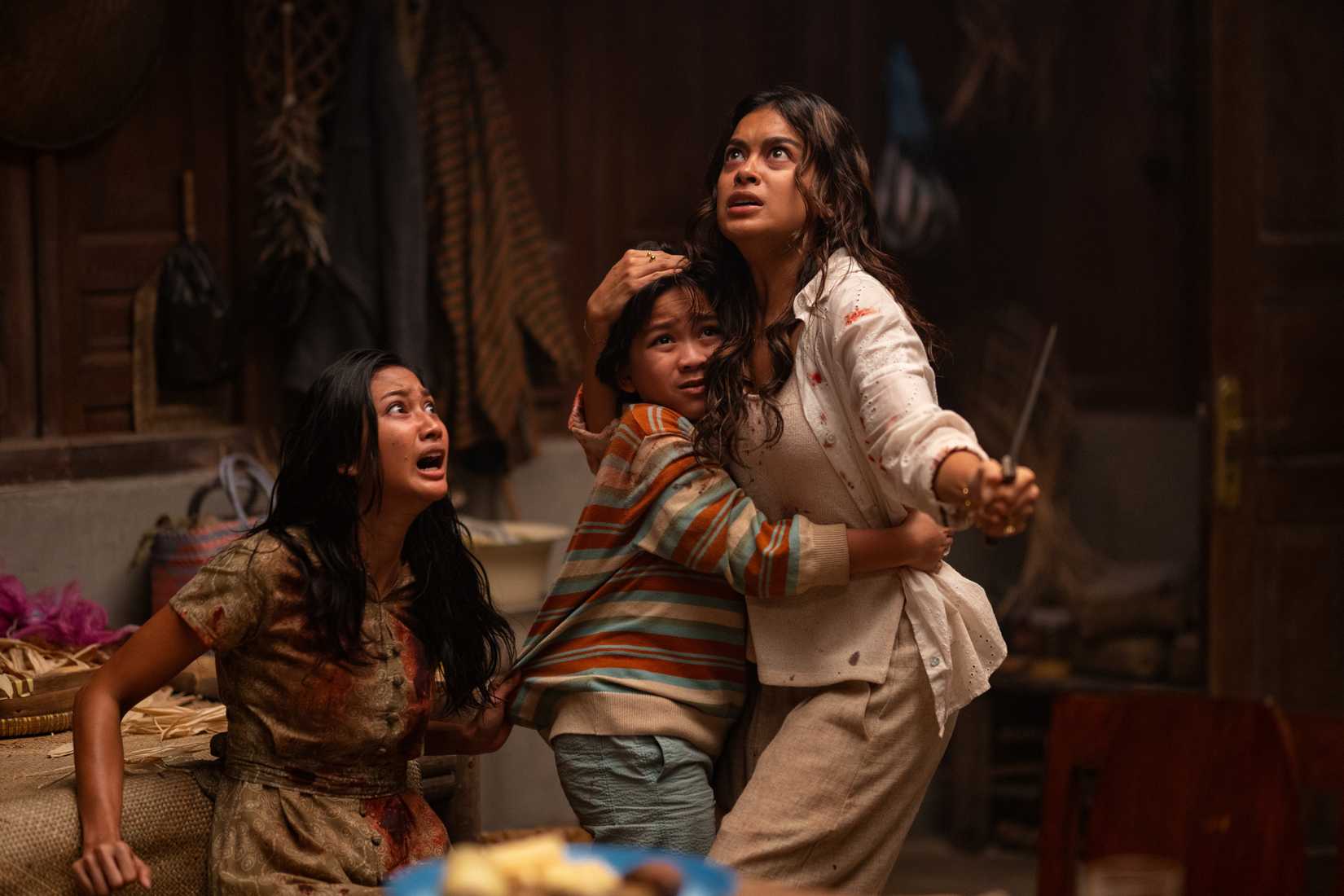I am, for the most part, kind of over zombie movies. As much as I enjoyed 28 Days Later and inhaled the early seasons of The Walking Dead, the genre is a bit played out at this point. (Even the highly acclaimed 28 Years Later has been gathering dust in my to-watch queue for months.) But Netflix’s new Indonesian zombie flick, The Elixir, managed to subvert my expectations enough to be enjoyable.
For one thing, The Elixir has excellent pacing. It begins with a striking opening sequence in which a peaceful family party is disrupted by a van crashing into the guest seating area, after which a very undead-looking stranger stumbles out of the vehicle and attacks the partygoers. The scene is immediately followed by a flashback, and we get to observe the family hosting this party before tragedy struck in the form of a zombie delivery van.
Unlike a lot of zombie movies, The Elixir actually gives you enough time to get to know its main characters before people start trying to eat each other. There’s Nes, a wife and mother whose former best friend, Karina, is now married to Nes’ father (awkward). This has understandably resulted in a falling out between Nes and Karina. Nes’ brother, Bang, is kind but socially awkward, and enjoys playing video games with Nes’ young son, Raihan. Nes’ husband, Rudi, appears to have recently cheated on her. The patriarch of the family is Nes’ father, who runs a popular herbal remedy business called Wani Waras, and appears to care about only two things: his work, and his marriage to his daughter’s former best friend. Needless to say, this family reunion is a tense one.
I was so invested in the state of this family and their interpersonal drama that I almost forgot I was watching a horror film, which might sound like a bad thing, but wound up paying off. The Elixir spends a good amount of runtime showing us who each family member is, and how they contribute to the overall dysfunction. This focus on clashing personalities allowed me to connect with the characters enough to care about their fate — a rare feat in a genre that is often about introducing characters just to kill them off shortly thereafter. The Elixir doesn’t treat its characters as two-dimensional, disposable victims for a horde of zombies to gobble up, so it’s a genuine shock when things finally do go sideways.

Image: Netflix
The opening scenes of the party and various family interactions actually remind me of Parasite, a film which masquerades as a K-Drama with slightly dark humor before taking an abrupt left turn into “holy shit” territory. These introductory scenes don’t focus as much on humor as Parasite, but The Elixir still gives you enough time to settle into its world before it gets turned upside down.
The film also has a fairly interesting explanation for the source of the contagious zombification itself. Rather than an accidental lab leak or some sort of bioweapon, the source of this contagious disease comes from a new sample of Wari Waras herbal remedies developed by Nes’ father. Though we do learn a bit about its origins, I wish the film had spent a bit more time on how Wani Waras went from a trusted purveyor of holistic medicine to cranking out a deadly elixir that appears to contain a highly contagious virus. Lack of context aside, the effect this affliction has on humans is absolutely repulsive, and I love it. The Elixir’s zombies are fast, freaky-looking, and, perhaps worst of all, always smiling. This is a bold choice, but it works. The Elixir’s practical effects and CGI are also quite convincing, and all but guaranteed to trigger one’s trypophobia.
Even better than the gross-out scenes are the characters themselves. Sure, there are some moments of questionable decision-making (like in any good zombie movie), but for the most part, Nes and her family are resourceful and quick-thinking. They also aren’t afraid to kick a zombie in the face, stab it with a pitchfork, or beat it over the head with the nearest heavy object instead of freezing like a deer in headlights as death approaches.

Image: Netflix
The Elixir doesn’t abandon its themes of familial discord when people start turning into zombies, which was a pleasantly realistic subversion of the “We don’t get along, but you almost died so I instantly forgive you for everything!” trope often seen in apocalyptic films. It’s clear that Nes loves her family and cares about her husband, Rudi, but it’s also clear she’s still holding onto resentment over his betrayal of their marriage vows. When the family gets separated, they agree over the phone to regroup at a nearby location. But when Bang reveals he doesn’t know how to get there, Nes unleashes a massive amount of frustration on her brother that’s clearly been brewing for years. Nes isn’t perfect, and her family — flawed as it is — feels realistic and relatable because the film doesn’t try to push the idea that a near-death experience instantly cures familial strife. This makes the moments when these characters do show appreciation for each other feel much more genuine.
Despite The Elixir’s best attempts to break new ground, the ending is admittedly a bit stereotypical. The Elixir isn’t really offering up some profound message about family or society, either. Instead, it’s mostly serving up scares. But they’re effective scares, and because the film gives each character enough room to grow and doesn’t punish them for having flaws, the result is an engaging and enjoyable entry in the zombie horror genre that stands out from the many shambling corpses of its peers.
The Elixir is streaming now on Netflix.

